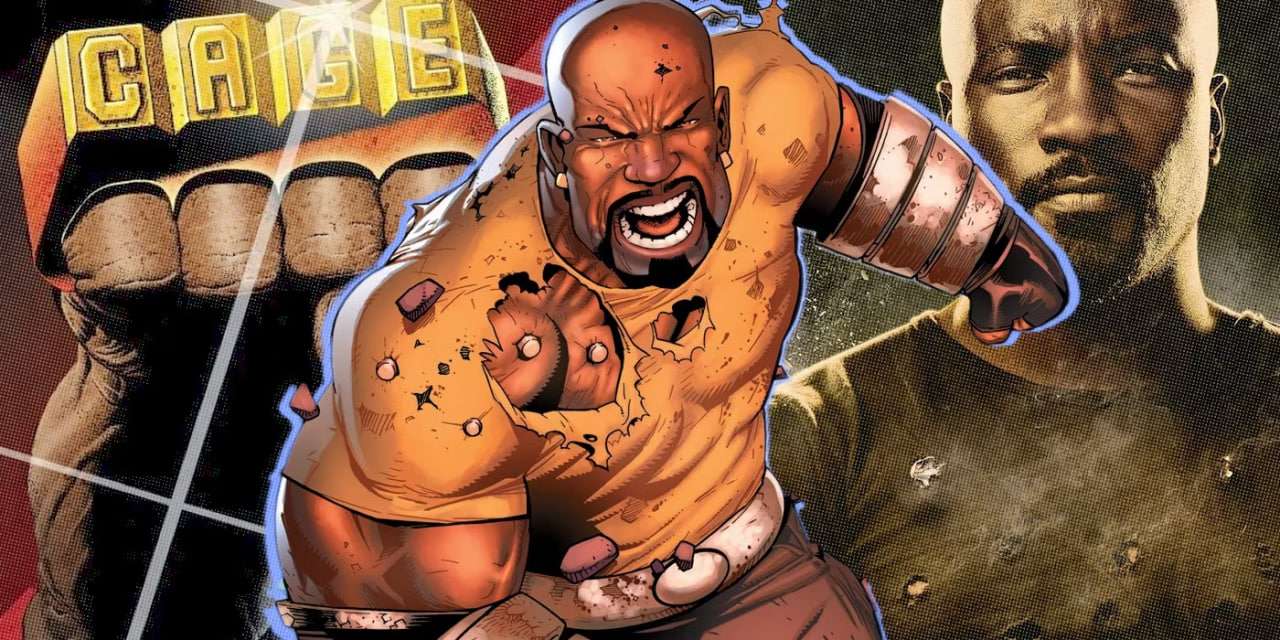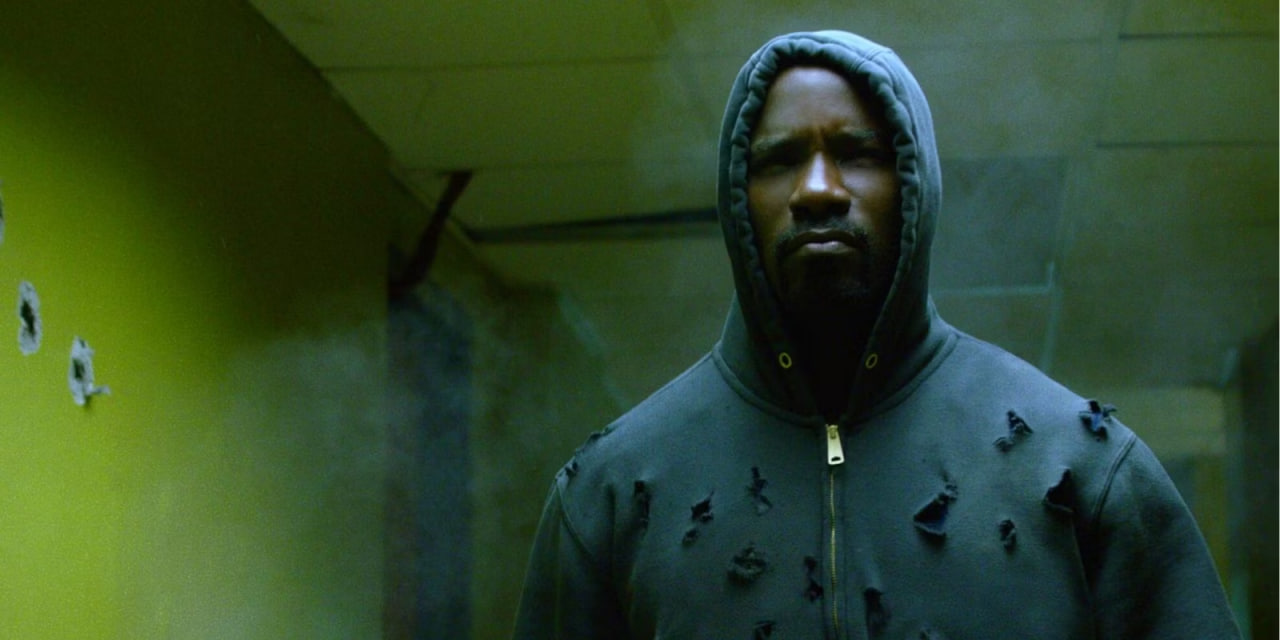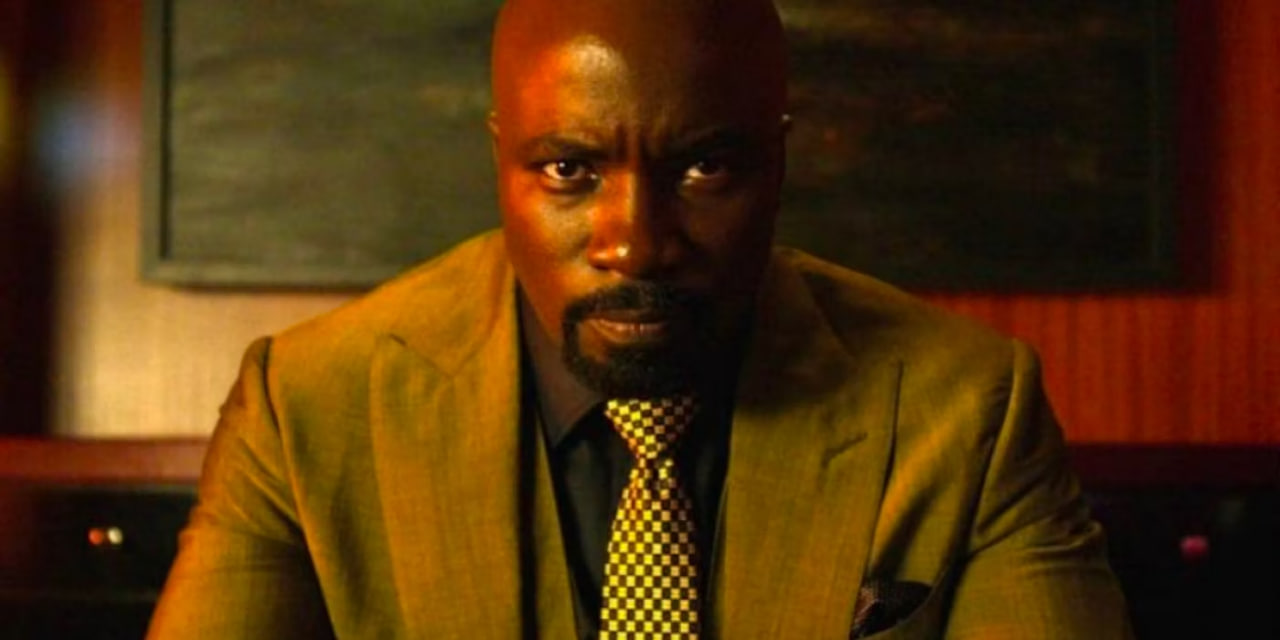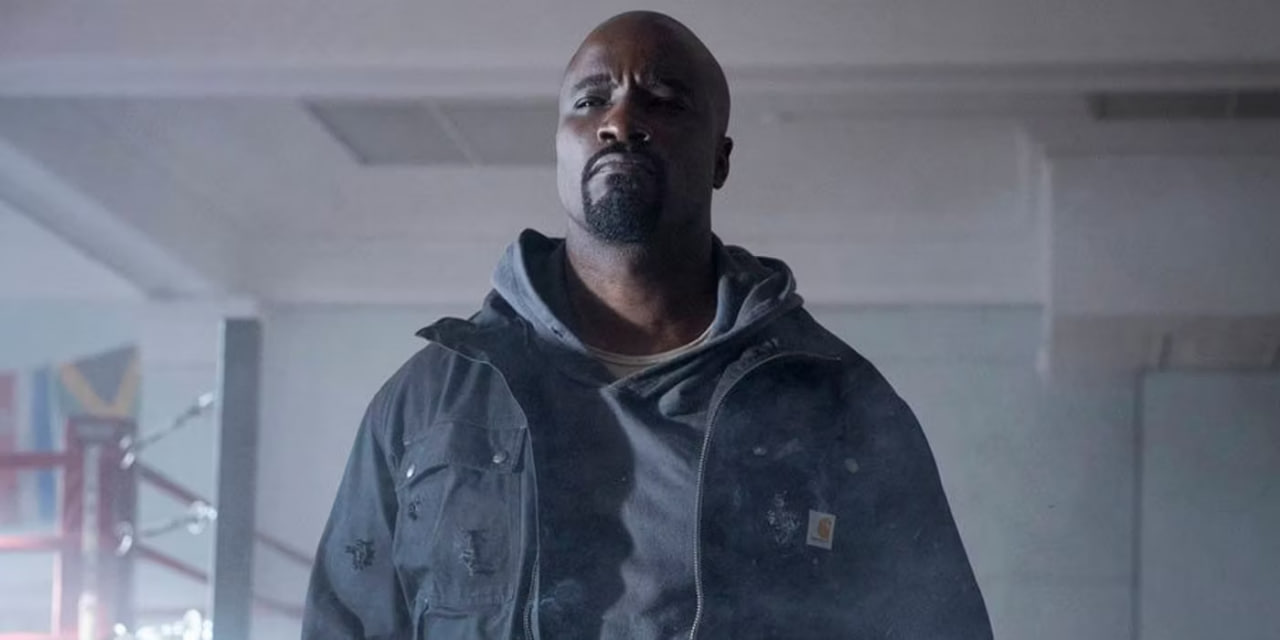Luke Cage and other Netflix heroes are finally canon in the MCU. But his origin is still very unique when compared to his comic origin.
The Marvel Cinematic Universe continues to expand, but since the early days of Daredevil, the first of Netflix’s superheroic TV dramas, their status as a part of the MCU was up in the air. Echo has since confirmed that the series is canon in the MCU, but, as a result, fans who didn’t tune into Jessica Jones, Iron Fist, Defenders, or Luke Cage may be a little behind on the TV origins of the show’s titular heroes. While die-hard comic readers may know the gist of each hero’s backstory, and each show is relatively faithful to its source material, Luke Cage makes some key changes to the Hero for Hire’s first appearance.
Mike Colter’s transformation from Carl Lucas to the hero formerly known as Power Man doesn’t come until Season 1, Episode 3, “Who’s Gonna Take the Weight?” when Luke and his landlord find themselves trapped in the rubble of their apartment building. As Luke reflects on what it feels like to be trapped, the viewing audience at home sees a man wrongfully convicted of an anomalous crime and submitted to pressures that would break most people. It’s less a setup for an all-new head-busting hero and more social commentary on the American justice system through a retrospective look at a man who refuses to be caged.
Who is Luke Cage?

Luke Cage evolved from a mirror of ’70a blacksploitation and became a voice of the streets of New York City with powerful social commentaries fueling his adventures.
The story starts as it does in the comics, in Seagate Prison New York, which some call “Little Alcatraz.” In the wake of the Battle of New York, Carl Lucas was a police officer until he was framed and wrongfully convicted of an unspecified crime. The actual charges against him don’t matter, as the only thing anyone around seems sure of is his innocence. He’s quiet and entirely self-isolated for his first few weeks until, eventually, a psychologist named Reva Connors, played by Parisa Fitz-Henley, convinces him to open up.
Lucas makes a friend but ends up under the thumb of the corrupt Captain Rackham. Rackham is fully aware of the injustice of Lucas’s sentence and takes advantage of his desire to get out by offering him the chance to join an underground fighting ring run by the prison staff. Lucas refuses, but as Rackham forces him to watch guards mercilessly beat up his friend, Lucas realizes he has no choice. All the while, in the background, rumors start to spread through the prison about inmates going missing and never returning due to mysterious experimentation.
After training with his only friend in prison for several weeks and winning all of his fights, Lucas’s mental health deteriorates. He stops taking care of himself and loses himself in combat but insists that he has a plan to escape. Rackham hears of this and sends goons to beat Lucas within an inch of his life, and the audience watches as Reva pleads with her mysterious superior to put Luke through a life-threatening procedure. Adorned with only the iconic crown and bracers, Lucas is submerged in a chemical bath under the watchful eye of Dr. Noah Burnstein until Rackham barges in.
The captain insists that if Lucas survives, he will reveal the truth about corruption at Seagate, and then he flips a lever and sends the chemical bath into overdrive. The mystery acid overheats and boils as Lucas’ wounds knit themselves together near-instantaneously; his screams are drowned as the machine overloads and blows up, seemingly killing Rackham and the doctor. Lucas punches his way out and swims into the city, stealing a baggy yellow shirt and blue jeans to complete the iconic look from Luke Cage, Hero for Hire #1 by Archie Goodwin with pencils by George Tuska and inks by Billy Graham. Catching his reflection in a car window, the changed Lucas says he looks “like a damn fool” and ditches the hokey crown.
What Are Luke Cage’s Powers?

In the comics, Luke Cage’s powers are tied to the many weapon programs that led to Wolverine becoming Weapon X.
In a dingy hotel room, Lucas effortlessly pulverizes a can of shaving cream as he realizes he will never need it or have to fear cutting himself again. Reva explains that the chemicals are intended to heal people, but the unforeseen overheating and malfunction caused the process to go awry, granting Lucas super strength and bulletproof skin as side effects. She asks Carl what he’ll do next and says he’ll need a new identity. Carl reflects on Luke 4:18, a psalm his disapproving father recited to him, and says that “no one can cage a man if he truly wants to be free.” At that moment, Luke Cage is born.
He goes on to use his strength and invulnerability to take on street-level crime, which leads him to bigger enemies and more complex plots. While he, like many other Mighty Marvels, gained his powers through an accident that could’ve happened to anyone, they aren’t what made him a hero. Luke Cage is a man who rigidly maintains proper posture and grammar at all times. He’s generally pretty friendly, sometimes a little preachy, but always aiming to be the bigger person in any conflict.
Luke tries to use his words as often as possible and does so because he’s mostly unmatched with his fists. Naturally, in a world full of accidental powers, one is bound to meet their match eventually, and joining the MCU means even more matches for Cage, but if the comics are any indication, that shouldn’t be much of a problem. He took on Doctor Doom and filled in for the Thing when Ben Grimm lost his powers. He’s not Hulk-level by any means, but he can lift cars and shrug off most normal weapons. On the rare occasion that he does get injured, he’s shown to have an astonishingly accelerated healing factor, and many have suggested that he might be immortal, given just how hard it is to take him down.
How Does This Luke Cage Measure Up to the Comics

Luke Cage, in the MCU, has yet to adopt the position of Hero for Hire.
Like the other Netflix dramas, Luke Cage takes serious diversions from the source material. In his first comic appearance, Carl Lucas was a street-level criminal all his life. He and his best friend and partner, Willis Stryker, became powerful figures in Harlem until they both fell for Reva Connors, who died shortly after Cage’s imprisonment in the books. She, unlike her TV counterpart, had no connection to the prison system or the experiment that gave Cage his powers. When Stryker appeared in Luke Cage Season 1 as Diamondback, he didn’t have much connection to Reva, who died unceremoniously in Jessica Jones, but his connection to Luke was clear enough to make for a heartbreaking tale of a house divided.
All in all, Mike Colter’s portrayal captures the spirit of the character well. Finn Jones’ Iron Fist has its own set of issues, but his on-screen chemistry with Colter was a fine portrayal of the infamous duo. He’s not quite as brash as he was in his early days as Power Man, but the TV portrayal draws more from the newer, post-Civil-War-era Cage. He’s a provider for his community and, in many ways, a businessman, which is something the show only began to scratch the surface of before its cancelation.
Seeing Cage’s story as the unexpected owner of Harlem’s Paradise unfold further could be an interesting diversion from the formulaic action films fans have grown accustomed to and instead delve back into the gritty crime-drama vibe of the Netflix shows. Cage’s stoic demeanor and lumbering heavyweight fighting style were fun to watch and could work well within the vibrant network of heroes in the MCU.
How Will Luke Cage Fit Into the MCU?

Before the series’ cancelation, Luke was primed to protect Harlem by controlling crime as a sort of gangster.
The comics make clear that the accident that transformed Carl Lucas into Luke Cage was a relatively successful attempt to replicate the super-soldier process that created Captain America. This wouldn’t be new territory for the MCU, as Mark Ruffalo’s Bruce Banner transformed himself trying to do the same, and The Falcon and the Winter Soldier introduced Isaiah Bradley, who had a full career as a super soldier in the Korean War after Captain America’s presumed death. It could further the commentary on the American government’s treatment of African Americans present in Luke Cage, The Falcon and the Winter Soldier, and Power Man comics while adding yet another rug-pulling dimension to fill out Cage’s mysterious backstory.
He’s a team player, as already shown by his time with the Defenders, and taking threats back to ground level for a while can be a good way to remind viewers what all the cosmic fighting is for. Setting a few stories in his world would be a great way to introduce the Netflix lineup to the new world around them. Luke Cage is a man of the people and prefers to focus on the issues that face his friends and neighbors at home and in their day-to-day lives before dealing with greater threats. His greatest powers are the qualities of his character that enable him to bond with people and bring them together to support one another.
He can be a bit of a stick in the mud, but with Steve Rogers gone, there’s a place for someone who insists that people watch their language. There’s already precedent for Cage partially filling Cap’s patriotic anti-authoritarian shoes, as he stepped in to lead the Thunderbolts on Rogers’ behalf in the comics. He’s a strong role model and the best kind of everyman, and there’s always a place for characters like that in battles between good and evil.

